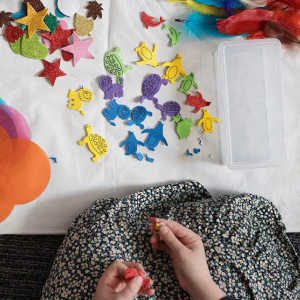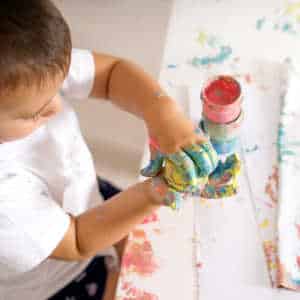What is Play Therapy?
Written on: 10 June 2025
Play Therapy is a child-centred, evidence-based therapeutic approach that uses play as a primary medium for helping children express their emotions, process experiences, and develop healthier coping mechanisms. Unlike traditional talk therapy, Play Therapy meets children where they are developmentally—through the natural language of play. Whether through drawing, storytelling, role play, or sensory activities, children can safely explore complex emotions or traumatic events they may not yet have the words to describe.
This approach is particularly effective for children experiencing anxiety, depression, trauma, behavioural challenges, school refusal, or family conflicts. It’s also highly adaptable, making it suitable for young people with additional or special needs.

The Benefits of Play Therapy
Play Therapy offers a wide range of emotional, social, and developmental benefits for children and young people. Some key advantages include:
1. Emotional Expression & Regulation
Play provides a safe outlet for expressing difficult emotions such as fear, sadness, anger, or confusion. Through metaphor and symbolic play, children can process their experiences at a manageable distance, making the expression of pain feel less overwhelming.
2. Improved Behaviour & Social Skills
As children learn to process and communicate their emotions in healthier ways, they often exhibit reduced behavioural problems and improved interactions with peers, educators, and family members.
3. Boosted Confidence and Resilience
By fostering self-awareness and emotional literacy, Play Therapy helps children build a stronger sense of self and resilience. This supports their ability to navigate future challenges with greater confidence and adaptability.
4. Neuroplasticity and Brain Development
Healthy therapeutic interactions promote neuroplasticity—positive brain changes in response to experience. These changes support better emotional regulation and behavioural control, laying the groundwork for long-term well-being.
5. Inclusive and Adaptable
With the right training and tools, Play Therapy can be tailored to meet the sensory, communication, and developmental needs of children of all abilities.



The Process of Working with Children
The therapeutic journey in Play Therapy begins with a thorough assessment to understand the child’s emotional and psychological needs. A key part of this process is the Strengths and Difficulties Questionnaire (SDQ), completed by the child, parents, and educators when applicable. The SDQ helps identify specific areas of emotional and behavioural concern and shapes the intervention plan.
Session Structure
- Frequency: Typically, Play Therapy is offered on a weekly basis for 40–50 minutes.
- Setting: Sessions may occur individually or in small groups, depending on the child’s comfort and needs.
- Activities: Children engage with materials such as sand trays, puppets, drawing tools, clay, and music. Older children and young people may incorporate talking or journaling into their sessions.
Therapeutic Techniques
Where more complex trauma or PTSD is present, therapists may integrate structured approaches such as the Children’s Accelerated Trauma Technique (CATT). CATT combines cognitive behavioural theory with creative arts and human rights principles, offering a child-specific solutions for processing trauma effectively.
Relationships and Outcomes
A strong therapeutic alliance is foundational to success. As trust builds, children begin to externalise their inner thoughts and feelings through their play. The therapist’s calm, regulated presence helps children co-regulate their own emotional states, fostering growth and healing.
As therapy progresses, follow-up SDQs measure the intervention’s impact, providing valuable insights into behavioural changes and emotional improvements. Upon completion, children receive a meaningful closure experience, such as a celebration or a memory box, and a comprehensive report is shared with parents and schools (on request)
In Summary: Play Therapy is a powerful, child-friendly approach that helps young people navigate emotional challenges and develop lifelong coping skills. By speaking the language of play, therapists can unlock healing, promote resilience, and empower children to thrive socially, emotionally, and academically.


Abi Sinclair is our leading therapist for Play Therapy at Shore Psychology. Abi has been a play therapist for the past five years and has worked with children in the community and in primary and high schools across Edinburgh. Find out more about Abi here.
To find out more about Play Therapy, why not get in touch by calling us on 0131 378 9700. Emailing us at [email protected] or submitting an enquiry form

 News
News
 News
News
 News
News